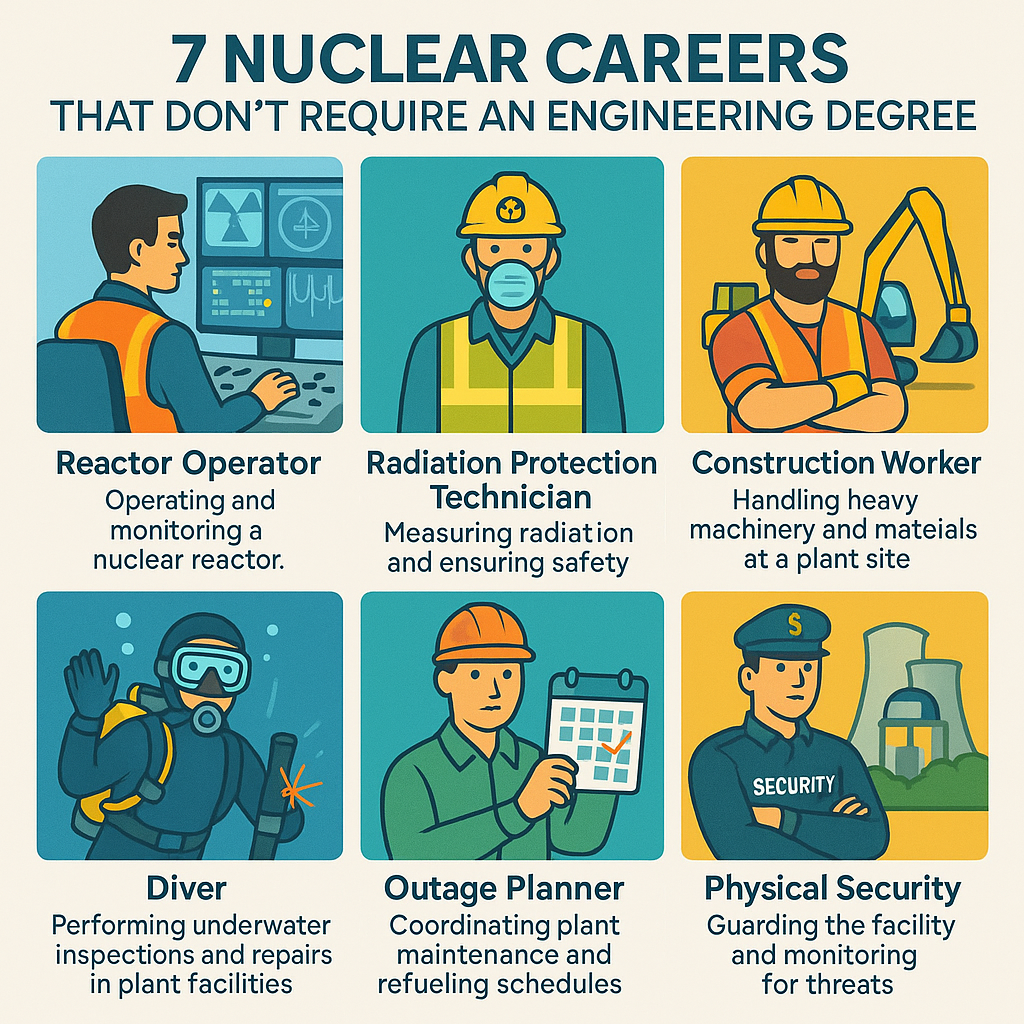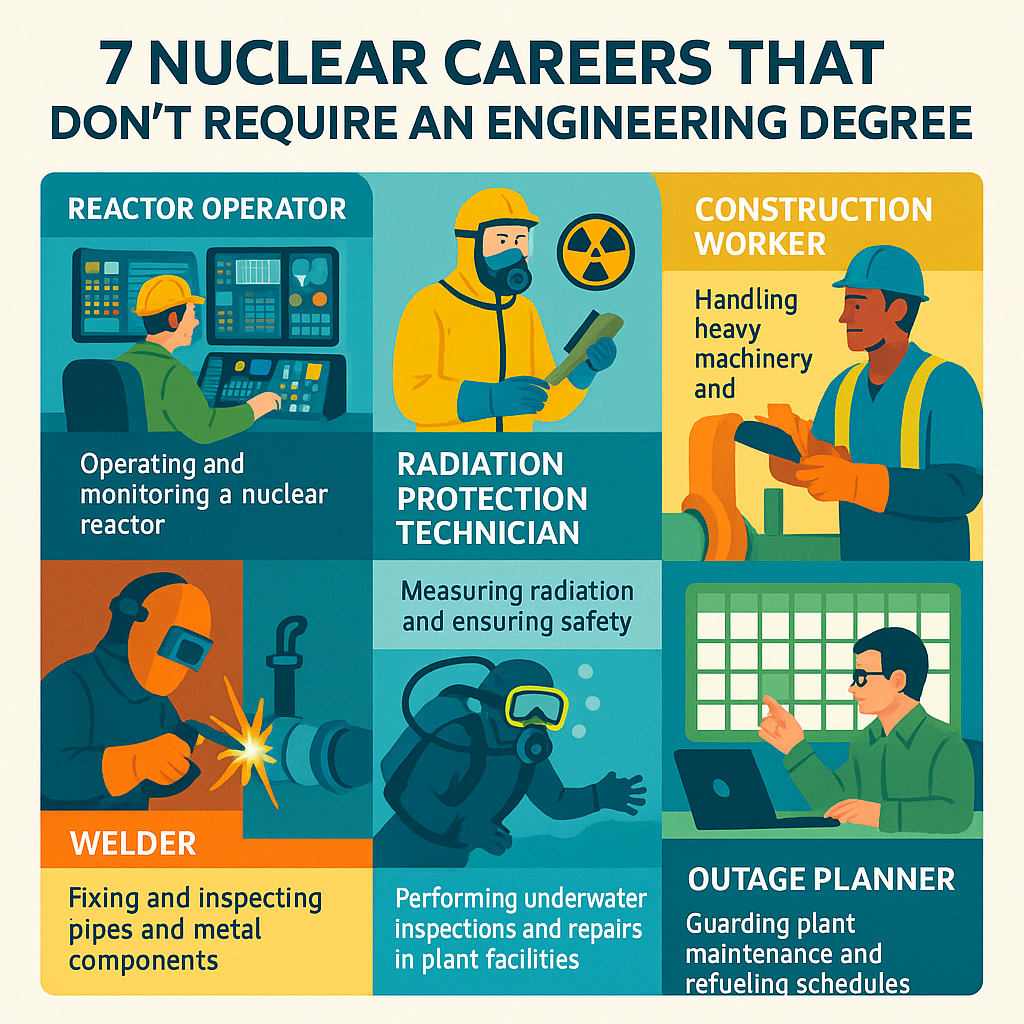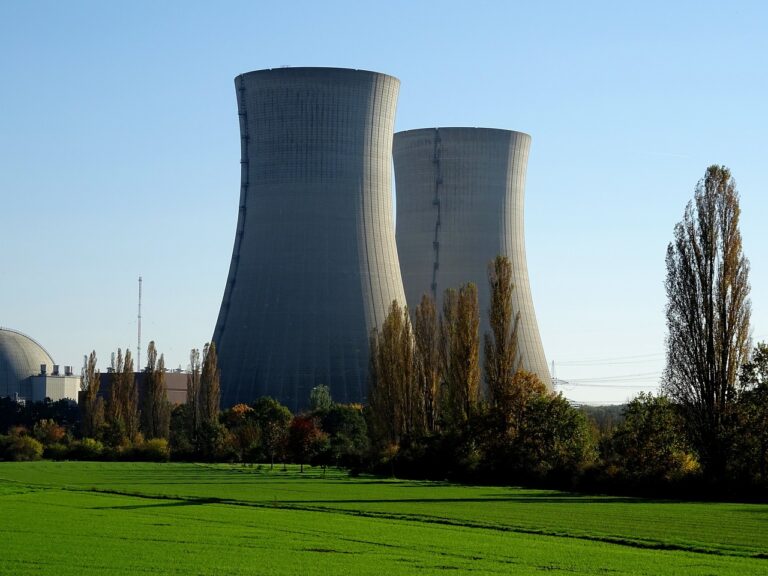7 Nuclear Careers That Don’t Require an Engineering Degree
When most people think of nuclear energy careers, the first thought that comes to mind is engineering. While engineers indeed play a crucial role in the nuclear industry, many vital careers do not require an engineering degree. These roles are essential to the safe, efficient, and secure operation of nuclear power plants, and they offer rewarding paths with opportunities for growth, specialization, and long-term employment.
Whether you’re transitioning careers, just entering the workforce, or looking for a hands-on role in a high-tech environment, the nuclear industry offers several career paths that are both stable and impactful. Here are seven nuclear careers you can pursue without an engineering degree, as highlighted by the U.S. Department of Energy’s Office of Nuclear Energy.
1. Reactor Operator
Reactor operators are at the heart of nuclear power plant operations. They are responsible for the day-to-day functioning of the reactor, including starting and stopping the reactor, raising and lowering control rods, and monitoring instrumentation and sensor data.
Key Responsibilities:
- Control reactor systems manually or via computer interfaces.
- Monitor control panels for abnormal conditions.
- Adjust power levels based on electricity demand.
- Follow strict operational protocols and emergency procedures.
Education/Training:
Most reactor operators need a high school diploma or equivalent, followed by rigorous training and licensure by the Nuclear Regulatory Commission (NRC). A background in science or technical subjects can be helpful.
2. Radiation Protection Technician
Safety is paramount in the nuclear industry, and radiation protection technicians are the frontline defense in monitoring radiation levels and ensuring that safety protocols are strictly followed.
Key Responsibilities:
- Measure radiation levels throughout the plant using specialized equipment.
- Ensure that radiation exposure to workers and the environment remains within safe limits.
- Implement safety procedures and monitor protective gear usage.
- Provide safety training to plant personnel.
Education/Training:
Typically requires a two-year associate degree in health physics, radiation protection, or nuclear technology. Extensive on-the-job training is also standard.
3. Construction Worker
Construction workers play a vital role in building and maintaining nuclear facilities. Their tasks range from pouring concrete and operating machinery to handling materials like steel rebar during expansions or maintenance projects.
Key Responsibilities:
- Perform heavy construction tasks safely and efficiently.
- Operate cranes, loaders, and other machinery.
- Assist in laying foundations and structural components.
- Coordinate with engineers and site managers.
Education/Training:
Generally requires a high school diploma or GED and vocational training. Certifications in equipment operation or safety can be advantageous.
4. Welder
Welders in nuclear facilities work on critical infrastructure components such as pipes and structural frames. Their precision ensures the plant’s systems remain leak-free and function safely.
Key Responsibilities:
- Weld and repair metal components and systems.
- Use advanced inspection tools to detect invisible flaws.
- Maintain strict adherence to safety and quality standards.
- Support outage maintenance and new installations.
Education/Training:
Vocational training or certification in welding is typically required. Nuclear-specific welding may also require specialized training and certification.
5. Diver
Though less commonly known, commercial divers are indispensable in nuclear plants located near bodies of water. They inspect and maintain underwater infrastructure and can even perform complex repairs in spent fuel pools.
Key Responsibilities:
- Inspect intakes and outflows for damage or blockages.
- Conduct underwater repairs where robotic equipment may not reach.
- Ensure that maintenance complies with safety standards.
- Work in specialized suits under radioactive conditions when necessary.
Education/Training:
Requires commercial diving certification and training in nuclear safety procedures. These divers often work with teams of engineers and technicians.
6. Outage Planner
Outage planners ensure that refueling and maintenance outages happen smoothly, quickly, and safely. They coordinate every step, from personnel scheduling to equipment preparation.
Key Responsibilities:
- Develop comprehensive plans for refueling and maintenance outages.
- Coordinate with various departments to ensure resource availability.
- Maintain timelines and ensure compliance with regulations.
- Evaluate past outages to improve efficiency and safety.
Education/Training:
Usually requires an associate degree or experience in nuclear plant operations, project management, or scheduling. Strong organizational skills are crucial.
7. Physical Security
Security personnel are a critical presence in nuclear plants, accounting for roughly 20% of the workforce. These professionals protect facilities against threats and maintain constant readiness.
Key Responsibilities:
- Monitor access points and conduct security checks.
- Train for emergency response and threat neutralization.
- Coordinate with law enforcement and emergency services.
- Maintain vigilance through surveillance and patrols.
Education/Training:
Requires a high school diploma or GED. Many positions prefer military or law enforcement backgrounds, and specialized nuclear facility training is provided.

Conclusion
The nuclear energy sector is much more than just engineers and scientists. It relies on a diverse team of professionals, many of whom come from non-engineering backgrounds. These roles offer competitive salaries, opportunities for advancement, and the chance to contribute to clean, reliable energy production.
If you’re looking for a stable career with a strong sense of purpose and don’t have an engineering degree, one of these nuclear careers might be the right fit for you.







